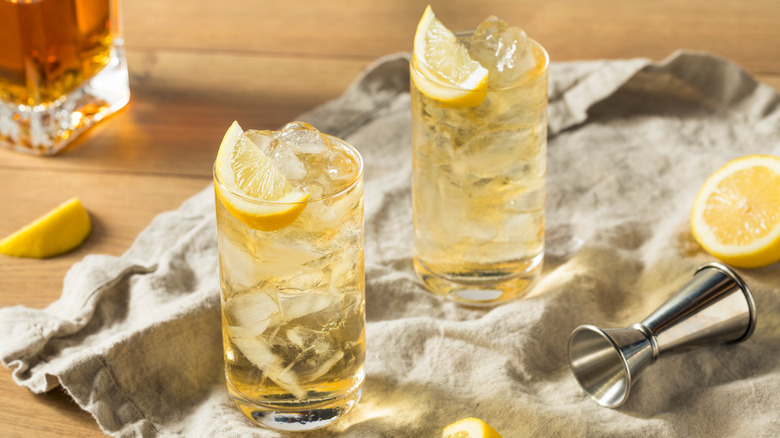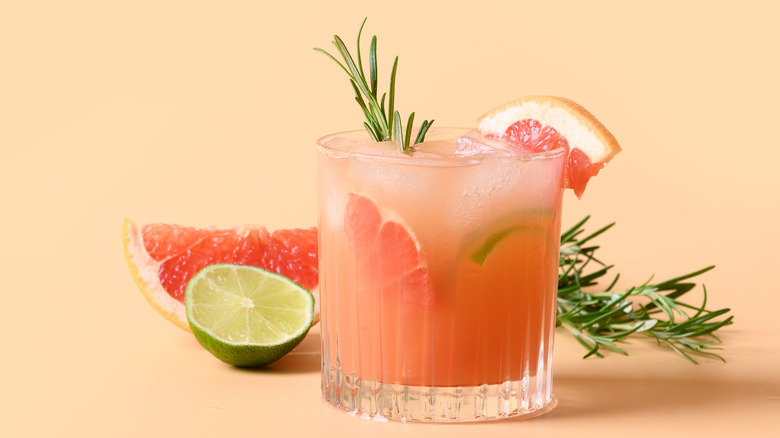Ordering Soda-Based Cocktails Is A Bad Idea For Business Dinners
When it comes to business dinners, the purpose is multifold. You want to remain professional enough to make a good impression, seal the deal (if that's what you're there for), and walk away having made an excellent connection. On the other hand, you want to show that you're human and build a relationship with coworkers or clients that connects you both on a personal level as well as a professional one.
With that said, your every move at a professional dinner should focus on striking that balance — right down to the cocktail you order.
Business dinners can be exciting yet a bit daunting, depending on the reason you're there. You want to come off as professional with not only your words, but also your outfit and drink choices. Keep it sophisticated and know your audience; if you're thinking of ordering a soda-based cocktail, here's why you might want to reconsider.
Avoid soda-based cocktails at business dinners
Soda is sweet, and it pairs well with certain types of alcohol and offers a solid flavor balance. With that said, it also lessens that flavor blow that inexperienced drinkers might not be used to. For that reason, some cocktails, such as a rum and Coke (comprised of only those two elements) or another soda-alcohol combination, can be seen as a more juvenile drink; something someone young and inexperienced would order. Because "inexperienced" is not the way anyone wants to come off at a business dinner, it's best to go with another cocktail.
The same goes with something like a 7 and 7, which is made with 7 Up and 7 Crown Whiskey. Chief Executive reports that Obsev.com calls this drink a "truck driver's drink of choice."
Finally, there's the Long Island iced tea. This cocktail, made from a combination of several liquors and finished with a splash of cola, has long had a reputation for getting people drunk quickly. As a result, it's best avoided in a professional setting.
There are some exceptions to this unwritten rule
You might not want to flag down your server to order a Long Island iced tea, but that doesn't mean every single soda-bearing cocktail is off limits. Depending on the type of place you're going, it could be appropriate.
For example, ordering a Paloma (made with grapefruit soda) if you're dining at an upscale Mexican restaurant seems fitting. Plus, club soda is common in a number of sophisticated cocktails, such as a Tom Collins or an Aperol spritz.
While the drink you order at a business dinner might say a lot about you, there is another etiquette rule to follow when it comes to cocktails. You should ideally order a drink that's either equal to or less than (in terms of alcohol content) the client or dinner guest. If the client orders a cocktail, you can as well, but if they order a glass of wine, you should do the same.


